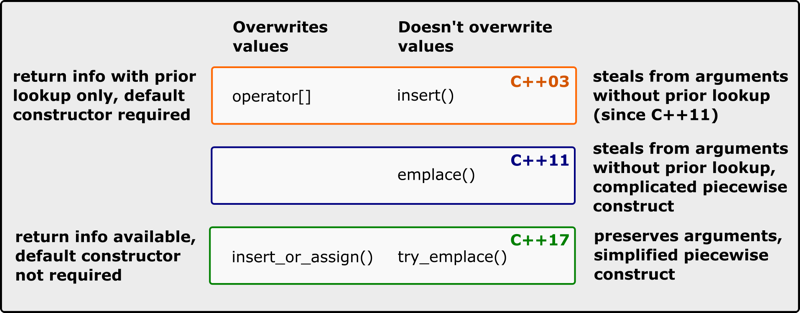Boost 1.69.0
New release.
Boost 1.69.0
From the article:
Notes for non-Windows users
The Boost build system now supports visibilities. If you are building shared libraries, they will use hidden visibility by default. As a result Boost shared libraries become smaller, load faster and have less chances to get a symbol collision.See Boost.Build visibility and local-visibility for more info.
To disable that feature you can use use a command line ./b2 visibility=global to build...

 C++Now 2019 will be held in Aspen, May 5–10, 2017.
C++Now 2019 will be held in Aspen, May 5–10, 2017. ACCU’s Overload journal of December 2018 is out. It contains the following C++ related articles.
ACCU’s Overload journal of December 2018 is out. It contains the following C++ related articles. If anyone ever asks you "why C++, and why is it so widely used?", here's a great short clip from 2011:
If anyone ever asks you "why C++, and why is it so widely used?", here's a great short clip from 2011: